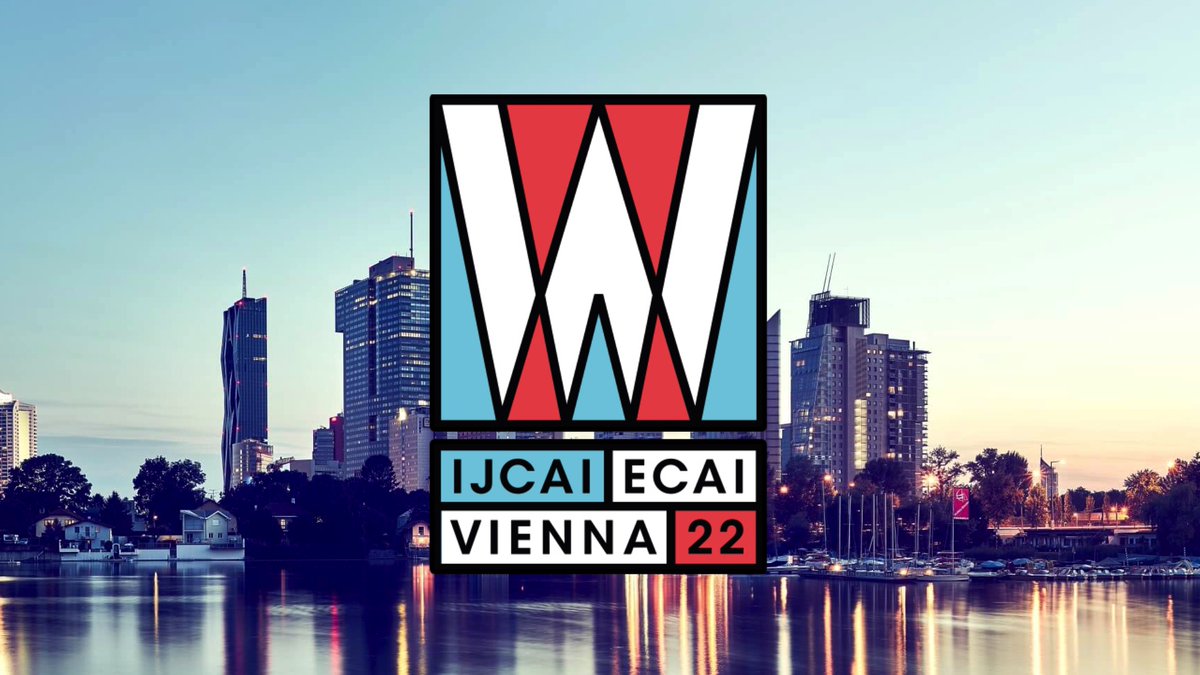In addition, Nayat Sánchez-Pi, Pablo Marquet and Luis Martí organize the "Workshop on AI for understanding the Ocean and Climate Change", which seeks to address the state of the art in areas such as artificial intelligence and machine learning, and bring together researchers and researchers interested in these techniques for problems related to marine biology.

Between July 23 and 29, the version of the 31st IJCAI-ECAI 2022 will be held in Vienna. The activity is the joint international conference that brings together the scientific community from different parts of the world to talk about artificial intelligence, its advances and their investigations.
At the event, there will be various workshops and tutorials, as well as video demonstrations and even a robot exhibition. From Inria, we will be present through the challenge "AI methods for determining ocean ecosystems from space: Combining genomic information, microscopic and satellite imagery", which is part of the activities of the OcéanIA project.
This scientific challenge invites the scientific community to determine variations of plankton species, which inhabit a certain area of the ocean by cross-referencing genomic data and microscopic and satellite images. Participants must work with different artificial intelligence (AI) and machine learning (ML) tools to achieve the objective.
The challenge began on April 20, but you can participate until July 29 and will consist of two phases. In the first, the teams will work on a plan to generate a solution, developing a brief paper that can then be selected for a second stage, in which the teams will work on the previously presented solution.
The ocean is the main regulator of the earth and currently absorbs about 30% of the planet's CO2, and climate change has already begun to adversely influence the functioning of the seas, also affecting their ways of life. Despite this, there is still a lack of information and data to better understand and quantify the consequences that the impact will have on the marine ecosystem, and this is where AI, machine learning and modeling tools become essential. However, solving these problems pose great challenges to the current state of the art.
This challenge is an opportunity to attract the entire AI and ML community to these problems, which from a scientific point of view mean a tremendous challenge. Participants will have georeferenced data, plankton images, genomic data and tutorials available for the duration of the challenge.
The director of Inria Chile, Nayat Sánchez-Pi, explains that “for us, the OcéanIA project is extremely important, which, in addition to its possible impact, also involves an international collaboration of universities and Inria centers both in Chile and in France. . The time to worry about climate change is now and new AI tools are needed for the oceans to continue to fulfill their role as regulators of the biosphere on earth.”
In addition to the challenge, Inria Chile will participate in the IJCAI-ECAI 2022 as organizer of the "Workshop on AI for understanding the Ocean and Climate Change". This activity will be led by the CEO of Inria Chile, Nayat Sánchez-Pi, the scientific director, Luis Martí, and the researcher of the OcéanIA project and professor at the Catholic University of Chile, Pablo Marquet.
This Workshop seeks to address the progress and state of the art in areas such as AI, ML, based on methods that improve the management of neural networks with information structured in graphs, that improve the ability of ML methods to learn in data contexts small, enabling understanding of causal relationships, interpretability, and explainability in AI, and enabling a novel approach by integrating data-driven models to develop, calibrate, and validate existing mechanistic models. In addition, the objective is to answer questions that arise after using these techniques; What are the plankton patterns and functional diversity?; How will these patterns change with climate change? How will the oceans evolve to absorb CO2 from the atmosphere? among other.
The idea is to bring together researchers in the area of AI and ML who want to apply the state of the art of these to solve this challenge related to marine biology, oceanography and climate change, in addition to attracting natural science researchers interested in working together. interdisciplinary way.
For more information on the challenge: https://oceania.inria.cl/#ai-ocean-challenge-2022
